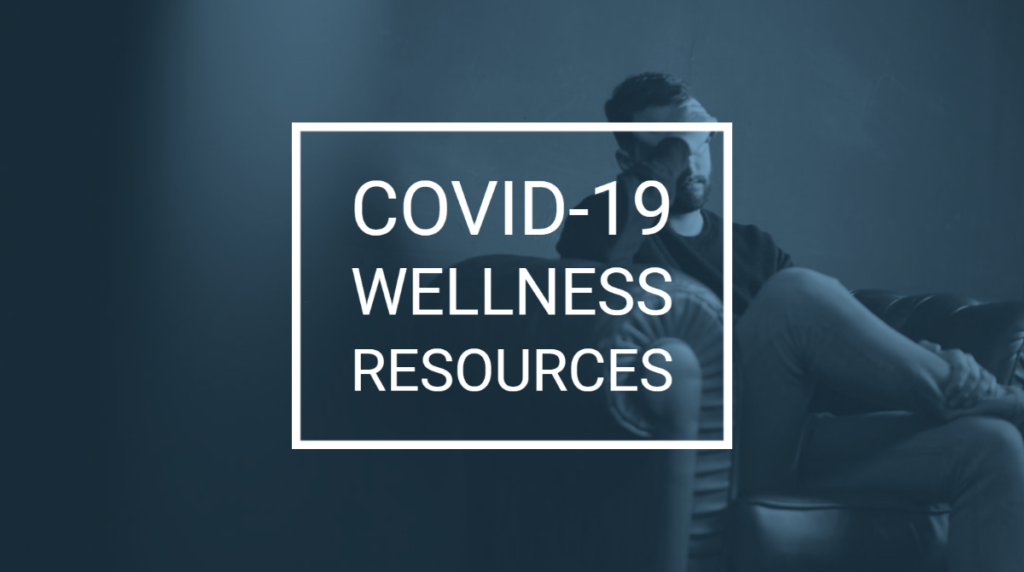
The COVID-19 pandemic has presented many unique challenges for our community and our mental health. Many people are experiencing heightened levels of depression, anxiety, and stress. Additionally, many individuals with persistent mental illness or a substance use disorder are trying to access care while maintaining physical distance from their usual sources of support.
While maintaining physical distancing is important, there are ways to receive care or maintain social connectedness while staying apart. Knowing how to access care, and with awareness of mental health risks, we can work towards coping with this challenging situation and reduce potential impacts on our mental health. Knowing how to cope with stress will make you, the people you care about, and your community stronger.
Here is a list of resources to help in these uncertain times:
Substance Use Disorder and Mental Health Resources
- Maine.Gov Resources for mental health, substance use, and domestic violence.
- Substance Use Disorder Virtual Recovery Supports Virtual support for those in recovery from organizations across Maine.
- SAMHSA National compendium of recovery resources.
- Portland Recovery Community Center PRCC is continuously updating this list of available online resources, which includes regular virtual meetings. Their staff is also working 9-5 and are available at 207-553-2575.
- Unity Recovery Offers a recovery support group meetings five times daily as well as a daily family and loved one recovery support meeting, and weekly LGBTQ+ and Women’s Only recovery meetings.
- Portland Public Health’s Needle Exchange Program Limited access to the NEP is being offered out of India Street. Please check their website for updated time or contact Zoe Brokos (sop@portlandme.gov) with any questions.
COVID-19 and Mental Health
Click the links to be directed to following articles and tips for individuals and families:
- Coping with stress during an infectious disease outbreak
- Taking care of your family during an infectious disease outbreak
- Taking care of your behavioral health: Tips for social distancing, quarantine, and isolation during an infectious disease outbreak
- US CDC COVID-19 Mental Health and Coping
- Nami Maine has launched a teen text support line to support local youth. This resource allows youth to talk about their feelings and get support from another young person. Learn more at namimaine.org/page/teentextline.
- YMCA of Southern Maine’s Virtual Group Exercise schedules
Helpful Phone Lines
- 24/7 Statewide Crisis Line: 888-568-1112
- 24/7 Peer Support Warm Line: 866-771-9276
- 24/7 Suicide Hotline: 800-273-TALK (800-273-8255)
- 211 for all COVID-19 related information including how to access behavioral health and social service resources. Many providers are accepting referrals for counseling via telehealth at this time.
- Amistad’s Portland Peer Line: 207-550-7920. Available Monday through Friday from 9 a.m. to 10 p.m.
- Nami Maine’s Teen Text Line: (207) 515-8398
Health Insurance Resources to Access Care
- The Maine Bureau of Insurance: as Issued an order saying that if an employer lays off or furloughs a worker and wants to continue offering employer-sponsored group health insurance coverage to the worker, the company’s health insurance provider can’t deny coverage. Read the Portland Press Herald coverage.
- MaineCare: Employees who lose health insurance in a layoff, or who didn’t have it to begin with, may be eligible for MaineCare.
- New Legislation: On March 19th, Governor Janet Mills signed The Made for Maine Health Coverage Act which “makes some of the most common medical visits free or less costly, simplifies shopping for a plan, leverages federal funds to help make premiums more affordable for small businesses, and puts Maine in the driver’s seat to ensure that all Maine people have clear choices for their coverage.” Click here to learn more.
Modified Language
Lastly, consider modifying language from social distancing to physical distancing.
Physical Distancing: World Health Organization is moving away from the term Social Distancing to Physical Distancing, responding to psychological implications of the term.
